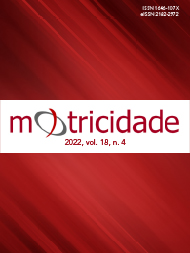The portrayal of sports doping in the media: a systematic review of the literature on doping in the context of the theories of agenda-setting and framing
DOI:
https://doi.org/10.6063/motricidade.25422Keywords:
doping, mass communication theories, sports journalismAbstract
Doping in sports is well documented in the public sphere in the form of news reports, but additional weightage is given to such media coverage during a year in which a mega sporting event such as Olympic Games is being held. This article aims to study the academic publications on sports media coverage of doping and their influential role in the formation of public opinions. A systematic review of academic publications on sports media coverage of doping published between the years 2000 and 2021 was conducted and led to the identification of twenty-seven relevant articles from a sample size of 1,152. Most of the relevant publications were based on qualitative research of the American media and utilised content originating in the traditional media format such as the print newspaper. The key gaps existing in the academic literature on this topic were due to lack of quantitative studies, exclusion of new media such as social media networks and over-reliance on American media sources which have their own vested interests and national agenda to push forward to the masses. Recommendations are mentioned along with potential areas of interest for future studies.
Keywords: doping, mass communication theories, sports journalism
Downloads
Published
Issue
Section
License
The authors of submitted manuscripts must transfer the full copyright to Journal Motricidade / Sílabas Didáticas Editions. Granting copyright permission allows the publication and dissemination of the article in printed or electronic formats, and copyrights start at the moment the manuscript is accepted for publication. It also allows Journal Motricidade to use and commercialise the article in terms of licensing, lending or selling its content to indexation/abstracts databases and other entities.
According to the terms of the Creative Commons licence, authors may reproduce a reasonable number of copies for personal or professional purposes, but without any economic gain. SHERPA/RoMEO allows authors to post a final digital copy (post-printing version) of the article on their websites or on their institutions' scientific repository.


